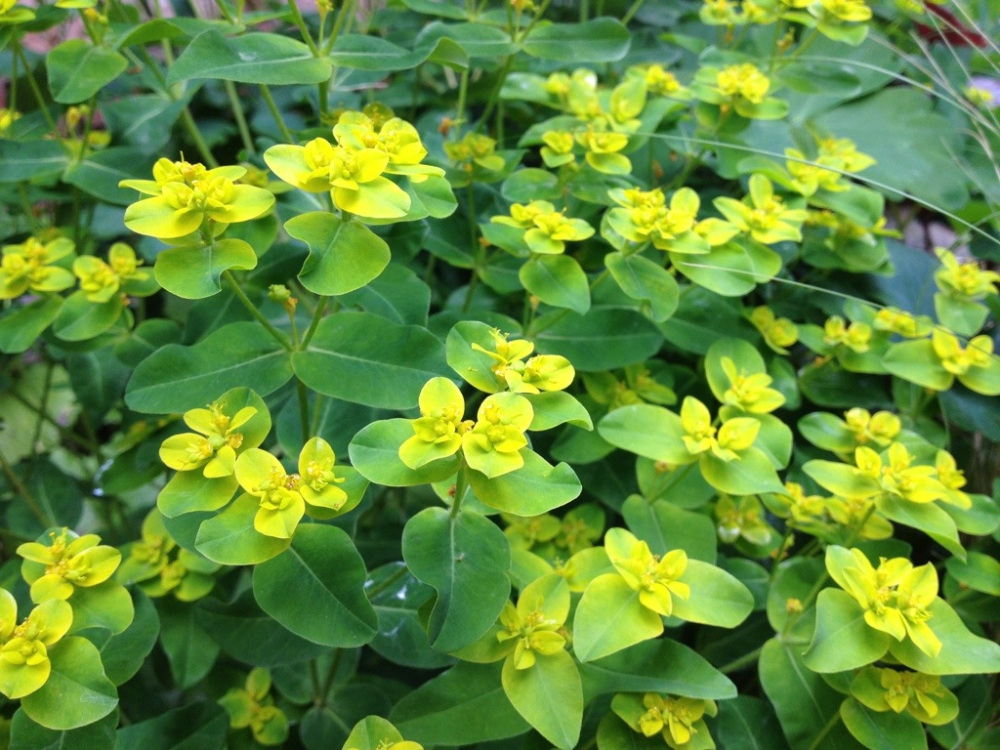Eggleaf Spurge

Eggleaf Spurge
(Euphorbia oblongata)
Priority: - Prevent / EDRR
Tags: Toxic
Identification and Reproduction
Identification:
- Eggleaf spurge is a upright perennial that grows about 0.5 m tall.
- Stems are covered in fine white hairs. Stems can be branching with each rootstalk giving rise to up to 20 stems.
- Leaves are egg-shaped and are finely toothed. Foliage is green to yellow-green with a prominent midvein.
- Flowers are found in clusters at the end of stems. Flowers have yellow bracts then a whorl of yellow-green leaves under.
Reproduction:
- This plant can reproduce by seed as well as adventitious buds from its root system.
- Seeds are covered in a sticky substance that allow it to disperse easily on clothing, pets, equipment and vehicles.
- When reaching maturity seedpods will eject the seeds.
Habitat & Ecology
- Eggleaf spurge has been observed in damp meadows, streambanks, shaded woodlands, roadsides and wastelands.
- It grows best in moist conditions.
Impacts
Social:
- Its milky substance from the stems and flowers is toxic to humans and livestock.
- Reduces likestock forage availability.
Ecological:
- This plant uptakes any available water and nutrients.
- Degrades wildlife habitat.
- It will out-compete native species.
Management
Prevention is a high priority for this plant.
- Learn to identify European common reed. Report suspected sightings and avoid moving through the site as this could lead to accidentally spreading the plant.
- Do not buy, plant, sell or trade this plant.
Resources
For more details check out the Washington State Noxious Weed Control Board's datasheet on Eggleaf Spurge.
For more details, check out the Government of BC Eggleaf Spurge factsheet here.
Header photo (CalPhotos).



